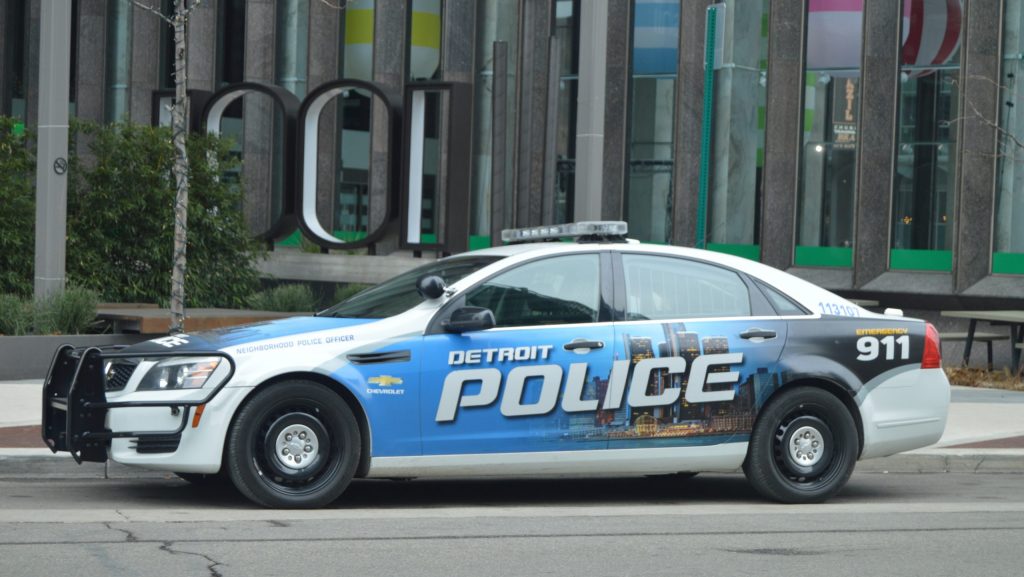Group Recommends Police Oversight Changes, Stripping Mayor’s Office of Appointment Power
A focus group reviewing Detroit’s charter recommends changes to civilian oversight of Detroit Police and the Regional Transit Authority readies a plan for 2020.


The Regional Transit Authority is conducting a study on expanding transit services across counties and a focus group proposed revisions to enhance the authority of the Board of Police Commissioners last month.
Detroit Documenters is a program by 101.9 WDET, CitizenDetroit and Chicago’s City Bureau to pay local residents to attend city meetings and take notes on happenings that often go uncovered. These notes are publicly available on documenters.org, where you can also find upcoming public meetings in the city.
Click on the player above to hear WDET reporter Eleanore Catolico speaking about what happened at public meetings.
Charter Revision Commission Focus Group Debates Changes to Police Oversight Board
What happened: A Charter Revision Commission focus group provided several recommendations to the city charter regarding the Board of Police Commissioners, the city’s civilian oversight board of the Detroit Police Department. Revisions proposed included:
- Giving the Board the power to hire the Chief of Police instead of it being a mayoral appointment
- Providing salary and staffing to police board commissioners
- Require that all police related shootings beyond arrest be investigated by the Board, that all citizen complaints against the police department be resolved within 30 days or regular updates are given to the Board during investigations, and,
- To eliminate mayoral appointees from the Board
Why this matters: The majority of the revisions to the city charter under consideration seek to enhance the scope of the Board’s authority while also eliminating the presence of mayoral appointments.
The 11 member board currently has seven elected members and four appointed members. The debate for these revisions comes as the BOPC’s recent 8-3 vote to approve DPD’s policy on the use of facial recognition technology to assist in criminal investigations received backlash from legal advocates and residents. The Board of Police Commissioners has more supervisory authority compared to civilian oversight boards in other cities, as some oversight boards only investigate citizen complaints against law enforcement.
The BOPC hosted the 25th annual National Association for Civilian Oversight of Law Enforcement conference last week, which draws members of civilian oversight boards across to country to receive training and resources to enhance police transparency and accountability. All proposed revisions to the city charter will be put up for a public vote, according to the city website.
What’s next: A schedule of the upcoming Charter Revision Commission Committee of the Whole meetings and focus group meetings are available on the commission website.
RTA Approves FY 2020 Budget, Hopes Updated Transit Plan Courts Voter Support
What happened: The Regional Transit Authority of Southeast Michigan unanimously approved its budget for the 2020 fiscal year, which will go into effect today, during its Board of Directors meeting earlier this month. The recommended operating budget is $4,631,506, according to the draft of the budget plan, with an estimated carry-over funding of $889,416 from last year’s budget.
The RTA budget will support an increase for staffing levels in administrative positions, public education and outreach which will assist going forward with an updated Regional Master Transit Plan and studies to analyze mobility needs, including the Mobility Oriented Development Study. This study will focus on the SMART bus transit services on Woodward and the Amtrak commuter rail connection between Ann Arbor and Detroit.
The budget will also support a study on the viability of expanding commuter rail services between Washtenaw and Wayne County that would include stops at Ann Arbor, Ypsilanti, Wayne, Dearborn and the Midtown neighborhood in Detroit. The RTA budget is subject to change once the fiscal state budget is approved by the legislature but most of the funding is secured through federal and state sources, according to RTA spokesman Mario Morrow.
If less money is allocated to the RTA from the state, it could delay hiring and other administrative operations.
What this matters: Another vote to expand mass transit in Southeast Michigan may be coming up as part of a ballot initiative later this fall.
The need for a robust regional transit system has been debated for several years. Strong mass transit will help meet the transportation needs of those without cars and help the region be more competitive when attracting business and development, but critics argue the system relies too much on buses and lacks support for a tax benefit regionally. In 2016, the RTA’s proposed tax to support the plan lost at the polls. Voters in Washtenaw and Wayne supported the millage, while voters in Oakland and Macomb opposed it.
The appointment of the new Oakland County Executive, David Coulter, has made transit one of his top issues in contrast to his predecessor, L. Brooks Patterson, who was a vocal objector to regional transit service. Morrow said that the RTA has been adjusting the current transit plan based on community feedback to develop the Connect Southeast Michigan framework, established in 2018.
“We are currently working to develop a plan that is more responsive to the people of Southeast Michigan,” Morrow said. “We anticipate having an updated plan for public discussion by the end of the year.”
What’s next: The next Board of Directors meeting will be on Thursday, October 17th at 2 pm at 1001 Woodward Avenue, Suite 1400 in Detroit.
